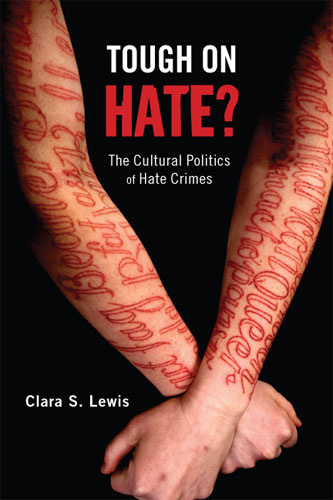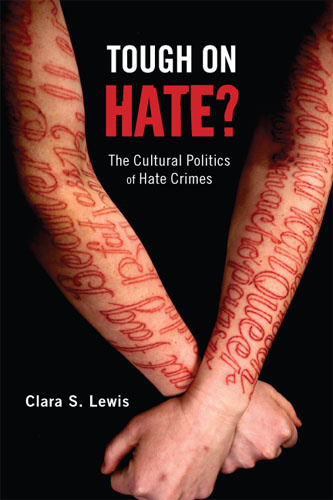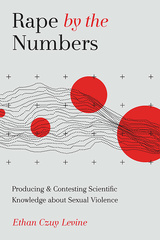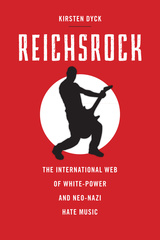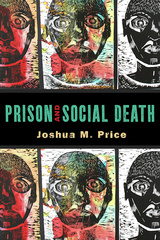Tough on Hate?
The Cultural Politics of Hate Crimes
Why do we know every gory crime scene detail about such victims as Matthew Shepard and James Byrd Jr. and yet almost nothing about the vast majority of other hate crime victims? Now that federal anti-hate-crimes laws have been passed, why has the number of these crimes not declined significantly? To answer such questions, Clara S. Lewis challenges us to reconsider our understanding of hate crimes. In doing so, she raises startling issues about the trajectory of civil and minority rights.
Tough on Hate is the first book to examine the cultural politics of hate crimes both within and beyond the law. Drawing on a wide range of sources—including personal interviews, unarchived documents, television news broadcasts, legislative debates, and presidential speeches—the book calls attention to a disturbing irony: the sympathetic attention paid to certain shocking hate crime murders further legitimizes an already pervasive unwillingness to act on the urgent civil rights issues of our time. Worse still, it reveals the widespread acceptance of ideas about difference, tolerance, and crime that work against future progress on behalf of historically marginalized communities.
Lewis provides a rigorous examination of hate crimes as a cultural product. The first analysis of its kind, the author has eloquently captured hate crimes as a seemingly impossible marriage of an oppressive criminal justice system and an aspiring civil rights movement. A deeply valuable contribution.
Beautifully written and powerfully argued, Tough on Hate? cracks a counterintuitive puzzle: how mainstream understandings and denunciations of hate crime magnify rather than mitigate its social harm. A marvelous and important book.
Lewis skillfully analyzes the rhetoric around hate crimes, examining news coverage, political hearings, legislation, and documentary films, and deploying theories from diverse disciplines in a way that will engage American Studies scholars.
Lewis’ book is relevant, thoughtful and very well argued. Tough on Hate is a highly valuable work that offers a perspective that compliments, advances, and challenges existing scholarship. Its greatest contribution is its critical central point: that combatting contemporary bigotry must be reassessed and expanded to include not only sensationalized violence, but other pervasive yet often ignored harms, that prejudice continues to inflict in our society.
Lewis’s presentation of the cultural politics of hate crimes is not only thought provoking and courageous but also has a lasting and valuable contribution. The coverage of smaller nuances within the topic, richness of the data, depth and objectivity of the analyses, and eloquence of the language make this book a must read for anyone who has the slightest interest in hate crime and is not afraid of having his or her perceived notion being challenged.
CLARA S. LEWIS is a senior lecturer at the Institute for Writing and Rhetoric at Dartmouth College.
1. Introduction: The Cultural Politics of Hate Crimes
2. The Invention of Hate Crimes
3. The Nation and Post-Difference Politics
4. Cultural Criminalization and the Figure of the Hater
5. Hate Crime Victimhood and Post-Difference Citizenship
Epilogue: Challenging Hate Crimes on a Cultural Front
Appendix: Methods and Sources
Notes
Index

